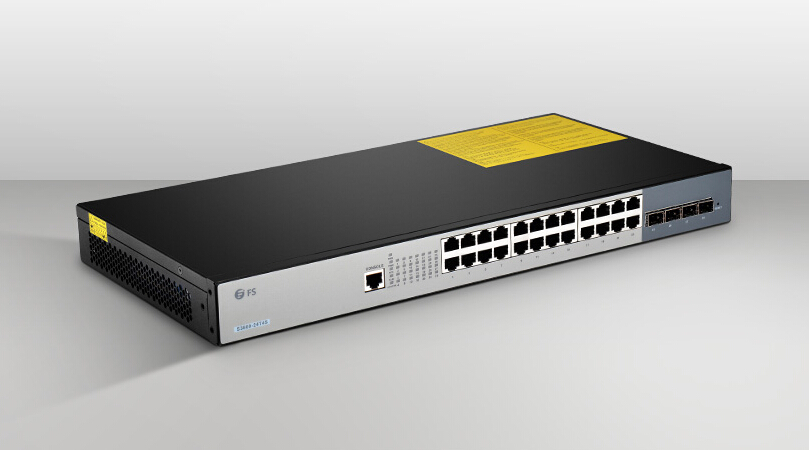What's the Difference Between a PoE NVR and PoE Switch?
Published on 23 August 18
0
0
I'm going to install two IP cameras in my house. However, I have no idea whether to use a PoE NVR or a PoE switch matching with them. So, what's the difference between them? Can some one help me?
Such type of questions can be seen in different tech forums, which indicates many people feel confused about the selection between PoE NVR and PoE switch. This blog intends to explore the differences between PoE NVR and PoE switch in details.
What Is PoE?

What Is a PoE NVR?
NVR represents for network video recorder which provides you with centralized video controls to easily view, manage, and store your surveillance footage in one convenient location. A PoE NVR is a security video recorder with built-in PoE switch designed to use with PoE-based IP cameras.
Equipped with a PoE switch, a PoE NVR recorder can deliver both data and power over a single Ethernet cable. There is no need for an additional PoE switch, which will reduce the cost of equipment in theory. You just need to connect one Ethernet cable from the camera to the PoE NVR recorder and then the built-in switch will provide power to the camera while transmitting data.
A PoE NVR is ideal for users with minimal network administration experience and is generally used in homes and small businesses. It creates a private camera network, keeping surveillance footage isolated from the main network and adding an extra layer of privacy.
What Is a PoE Switch?
A PoE switch or power over Ethernet switch, containing multiple Ethernet RJ45 ports, is a dedicated network switch with multiple Ethernet ports to connect network segments and provide power and network communications.
A PoE switch expands a network created by a router. Basically, it just assigns LAN IP addresses to your camera and needs to be tied into a system that allows you to see and manage your cameras, which is usually done with video surveillance software on a computer. Therefore, it must be connected directly to a router on the same network as your NVR. It can reduce the need for extra outlets and extension cables and saves deployment cost and labor efforts as well.

Difference Between a PoE NVR and PoE Switch
From the above, you will see that both PoE NVR and PoE switch can provide power and data transmission. However, a PoE NVR is limited in minimal network administration experience while a PoE switch can expend the network freely. What’s more, a switch does not assign IP addresses, which is the job of a DHCP server, usually built into a router. NVRs with a built-in POE switch provide this service, while PoE switches don’t. The PoE switch simply provides a data path between all of the devices connected to it.
This blog is listed under
Networks & IT Infrastructure
and Hardware
Community
Related Posts:
Post a Comment
You may also be interested in
Share your perspective

Share your achievement or new finding or bring a new tech idea to life. Your IT community is waiting!

 Rita
Rita






